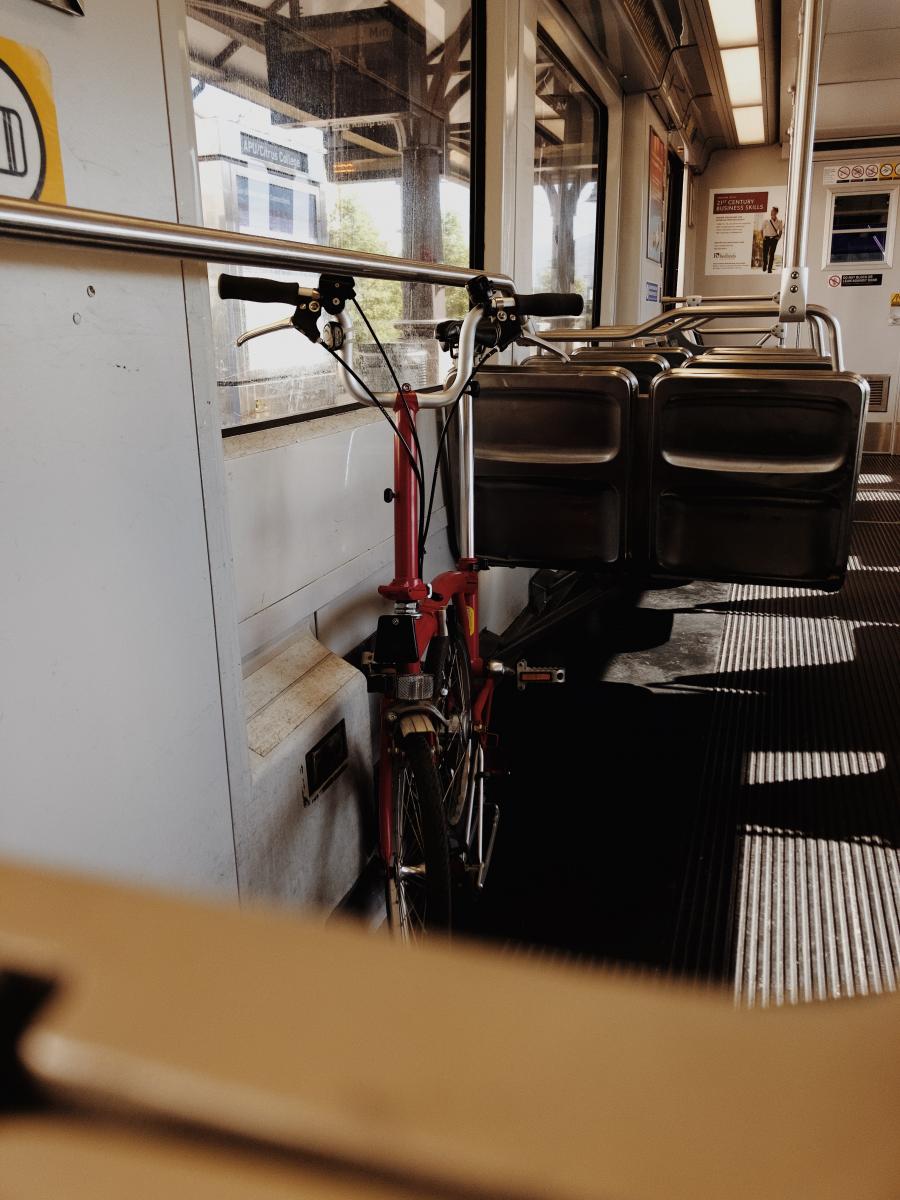
Will there be Better Conditions for Bicycle Carriage on European Trains?
With an increasing number of European citizens on the move, efficient and seamless intermodal transport is an ideal and environmentally-friendly mobility solution. That being the case, ECF and its members have for many years been lobbying for improvements to EU rail passengers’ rights to ensure that the basic needs of cyclists are met.
The existing wording of the relevant EU regulation (Rail passengers' rights and obligations Regulation (EC) No 1371/2007) is very weak concerning bicycle carriage – merely stating the conditions under which it can take place. Unsurprisingly therefore, many European services operate without sufficient capacity for cyclists (if any).
The good news is that the European Union is currently reviewing the rail passengers‘ rights regulation, which provides an opportunity to strengthen the wording relating to bicycle carriage. At the beginning of December, the Council of the European Union (the Council) finally adopted their position, which means that the the discussions between the three European Institutions (the European Commission and European Parliament had previously issued their own versions of the text) can begin. These negotiations (known as the Trilogues) are due to start in January 2020, meaning that during the first half of next year we will finally discover just how supportive the new wording will be.
Where does the European Union stand?
At the moment, EU regulations on rail passengers' rights date back to 2007 and only state the conditions under which bicycles might be carried.
“Railway undertakings shall enable passengers to bring bicycles on to the train, where appropriate for a fee, if they are easy to handle, if this does not adversely affect the specific rail service, and if the rolling-stock so permits.“
ECF and its members have long called for a stronger wording on bicycle carriage to push for a more proactive approach that will make the combination of trains and bicycles a genuine alternative to the private vehicle.
In 2017, the European Commission, put a proposal forward declaring “passengers shall be entitled to take bicycles on board the train.“ Moreover, the Commission recognised in a recital that:
“An increase of both railways and cycling in the modal split reduces the environmental impact of transport. Therefore, railway undertakings should facilitate the combination of cycling and train journeys as much as possible, in particular by allowing the carriage of bicycles on board trains.“
However, it left the door open to railway operators to refuse or restrict bicycle carriage for „safety or operational reasons.“
On November 15th, 2018, ECF welcomed the European Parliament’s vote to support much stronger wording, including a requirement to provide a minimum of eight bicycle spaces on all new and refurbished trains.
“Passengers shall be entitled to take bicycles on board the train, including on high speed, long-distance, cross border and local services. All new or refurbished passenger trains shall (…) include a well designated space for the carriage of assembled bicycles with a minimum of eight spaces “
Since the Parliament adopted its text, attention has swtiched to the Council (the member states). During the wait for the Council to agree its position, ECF is aware that several railway operators around Europe have been taking investment decisions based on the European Parliament’s text (e,g, in Poland), proving that providing adequate space for cycling is clearly possible.
investment decisions based on the European Parliament’s text (e,g, in Poland), proving that providing adequate space for cycling is clearly possible.
On 2nd December, the Council finally agreed its position. Whilst their wording offers an improvement to the existing regulations and includes some new elements, such as reimbursements when reservations are not honoured and the need for railways operators to prepare plans to increase and improve bicycle carriage, in general it is much more limited then the Parliament’s text.
For example, the Council’s position does not set a clear target nor a defined timeframe for realising the stated aim (repeated at the start of the Council’s text) that „Passengers shall be entitled to take bicycles on board the train...“. In other words, railway undertakings will not be required to implement the necessary measures that will make bike-train-bike commutes a truly flexible and efficient option for cyclists.
Furthermore, the restrictions to passengers being entitled to take bicycles on board the train have been expanded:
“Railway undertakings may restrict the right to bring bicycles for safety or operational reasons, in particular capacity limits during peak hours, or where rolling stock does not permit it. Railway undertakings may also restrict the carriage of bicycles based on their weights and dimensions.”
What happens next?
As stated above, the trilogues between the European Parliament and the Council are due to start at the end of January. Despite the differences in wording, it is currently expected that compromises can be reached and the final wording for the Regulation agreed during the first half of 2020.
That being the case, the ECF will be reaching out to its Members in January to support its efforts in ensuring the best possible outcome for cyclists.
Topics:
Contact the author
Recent news!
Upcoming events
Contact Us
Avenue des Arts, 7-8
Postal address: Rue de la Charité, 22
1210 Brussels, Belgium









